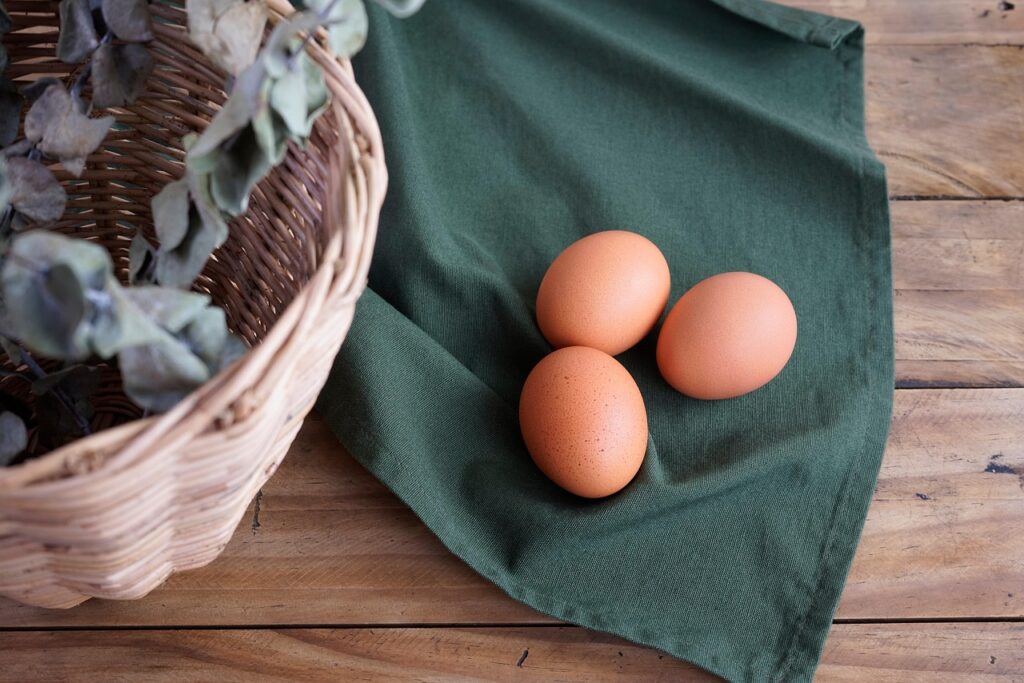Whether you just want to see a few chickens in the backyard or aiming for self-sufficiency, knowing how many chickens to get is important. Too few, and you will still have to buy eggs occasionally-too many, and you end up overwhelmed with eggs and high feed costs. Let’s discuss how to decide what is the perfect flock size for your family based on how often you eat eggs and breed production.

How often do you buy eggs? Let’s say you usually buy one or dozen eggs a week and you aim to get two dozen eggs a week from your chickens. Stick with an amount that will feed your family. It is easy to get carried away and think about having extra eggs for friends or even selling them.
Egg layers produce between 250 to 300 eggs a year. This averages out to about 5 or 6 eggs a week per chicken. So 5 chickens that lay 5 eggs (sometimes more) a week is more than two dozen.
Getting The Most Value From Your Chickens
Having just the right amount of chickens for your family will allow you to keep costs down. The coop will be smaller and less expensive, allowing you make or buy a coop that will be easy to move and clean. Make it cute. The chickens don’t care about that but it will be more fun for you to collect eggs and check on your girls.
Chickens are scavengers and will have a feast with kitchen and garden scraps. Keep a small lidded container under your kitchen sink for food scraps and take it out daily. Feed them back eggs shells, just crush them first. Mobile coops allow the chickens to forage for seed and bugs. You’ll still need to by chicken feed but it will stretch a lot further.
Chickens have an increase in egg production during the long summer months and scale back when the days get shorter. What most people do is give away the extra summer eggs they have. They then have to resort to buying eggs during the winter. Water glassing your extra eggs in the summer will keep you supplied with eggs during the winter months
Tips For Water Glassing Eggs
You will need:
- 1/2 or 1 gallon glass jars
- Pickling Lime
- Fresh, Clean, Unwashed Eggs
To make the lime water solution, use 1 ounce of lime per one quart of distilled water. Stir, being careful not to get it on you. I recommend the glass jars so you can see if an egg has broken and look over them occasionally. I had tried using two gallon buckets but the lime solution burned a hole in one. It’s pretty disgusting to find a broken egg that’s been sitting in a bucket for over a month. Check with your local sandwich shops to see if their pickles come in glass jars. If they do, ask if they can save some for you. I was able to get a few that way.
Having the right amount of chickens makes it a lot more manageable to care for them. Too many, and half the eggs are getting laid in your neighbor’s yard or hidden in a rotting pile somewhere.
